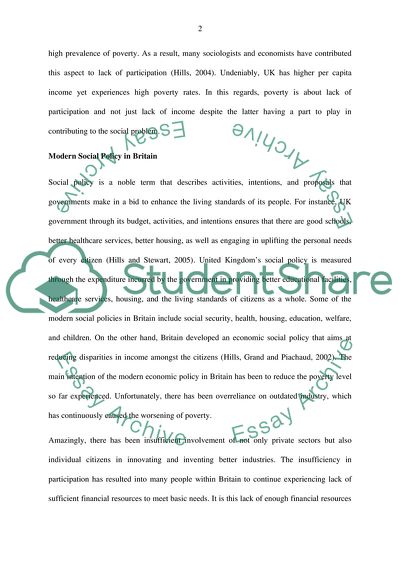Cite this document
(Poverty is about Lack of Participation, not just Lack of Income Essay, n.d.)
Poverty is about Lack of Participation, not just Lack of Income Essay. https://studentshare.org/sociology/1768077-poverty-is-about-lack-of-participation-not-just-lack-of-income-analyse-this-statement-in-relation-to-implications-for-social-work-practice
Poverty is about Lack of Participation, not just Lack of Income Essay. https://studentshare.org/sociology/1768077-poverty-is-about-lack-of-participation-not-just-lack-of-income-analyse-this-statement-in-relation-to-implications-for-social-work-practice
(Poverty Is about Lack of Participation, Not Just Lack of Income Essay)
Poverty Is about Lack of Participation, Not Just Lack of Income Essay. https://studentshare.org/sociology/1768077-poverty-is-about-lack-of-participation-not-just-lack-of-income-analyse-this-statement-in-relation-to-implications-for-social-work-practice.
Poverty Is about Lack of Participation, Not Just Lack of Income Essay. https://studentshare.org/sociology/1768077-poverty-is-about-lack-of-participation-not-just-lack-of-income-analyse-this-statement-in-relation-to-implications-for-social-work-practice.
“Poverty Is about Lack of Participation, Not Just Lack of Income Essay”. https://studentshare.org/sociology/1768077-poverty-is-about-lack-of-participation-not-just-lack-of-income-analyse-this-statement-in-relation-to-implications-for-social-work-practice.


